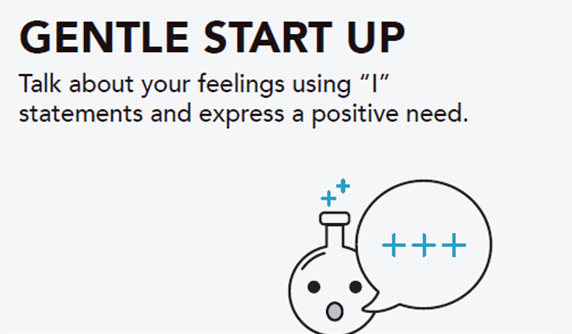John and Julie Gottman (2018) completed a six-year longitudinal study to understand the likelihood of a couple’s separation and divorce. They found that the first 3 minutes of a discussion are critical in determining how the conversation will end: constructively or destructively. This research essentially states that the tone you start your discussion is the tone it will end on. If you start off the conversation with a criticism or via attacking your partner (re: the four horsemen), you are more likely than not going to end up with the same level of tension, if not more, by the end of the conversation; and this can hinder us from truly hearing our partner, being heard ourselves, and creating mutual understanding so that there can be genuine resolution.
Sometimes, we fear vulnerability, even with those who are closest to us. Our more profound, tender inner emotions can be more challenging to share with others in their raw form. To protect ourselves in these vulnerable moments, we will, instead, share these emotions through feelings that are easier to access and make us feel more protected through distance (like anger, annoyance, or resentment). That anger (or other surface-level emotion) is often just a mask for the below-the-surface emotions, like hurt, disappointment, fear, or insecurity. Communicating with our partners through things like anger or frustration can create a barrier to being heard. If we attack our partners verbally, they will probably choose to defend themselves, which can be through defensiveness, stonewalling, etc. And at that point, no one is going to be heard. Reframing our anger through our more vulnerable emotions can make it easier for those we share with to understand us more fundamentally (Gottman & Gottman, 2018).
To ensure conversations start on a more positive, constructive note, gentle (or soft) start-ups can be a valuable tool for couples in their relationship toolbox.


